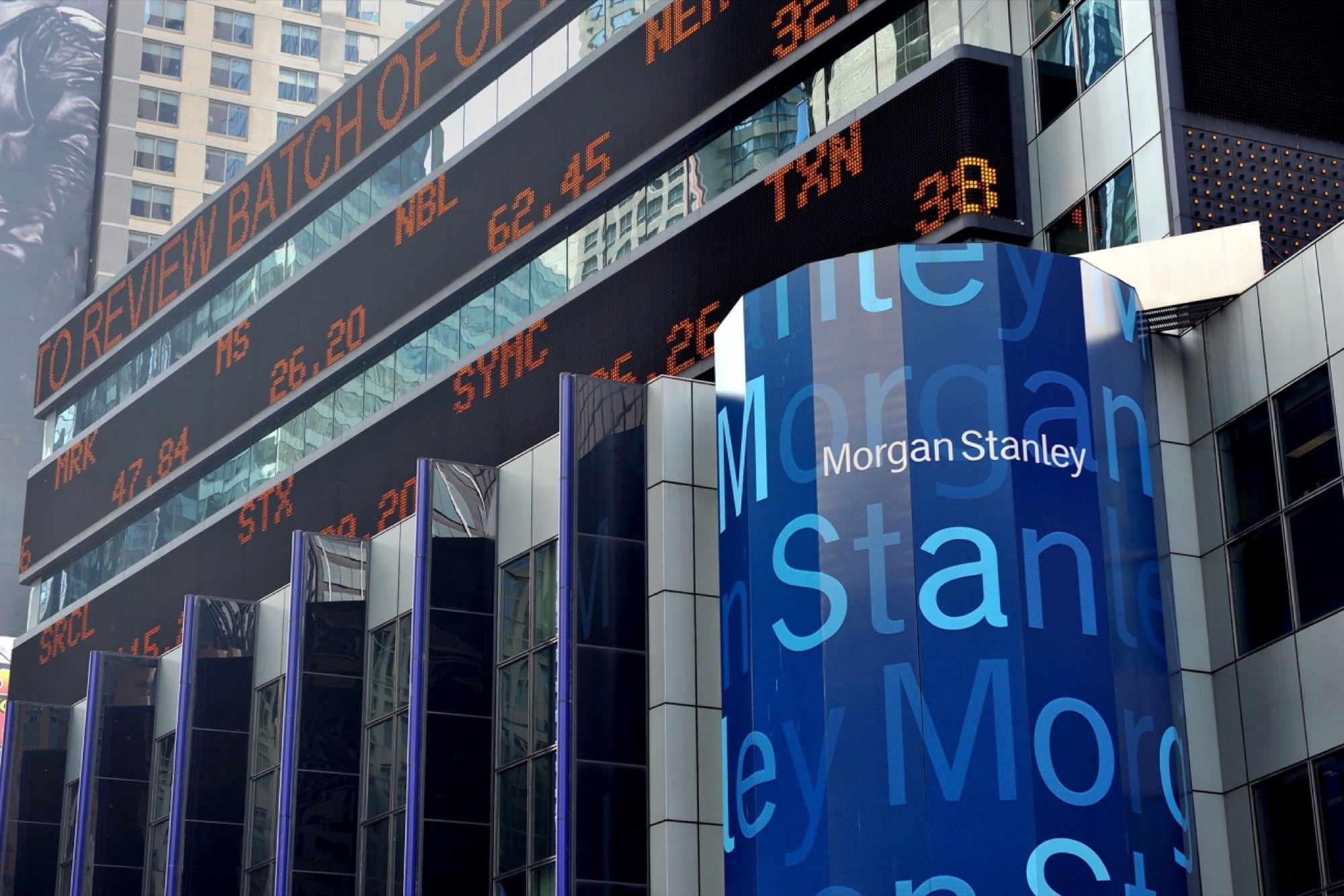How AI Machines Could Save Wall Street Brokers' Jobs Morgan Stanley creates a love triangle with the machine.
By Brian Uzzi Edited by Dan Bova
Opinions expressed by Entrepreneur contributors are their own.

Morgan Stanley's recent decision to partner 16,000 financial advisers with algorithms that can identify trades and prod brokers to reach out to clients is evidence of yet another in-road being made by machines into human roles. If brokers embrace this mind-and-machine partnership though, the payoff is job security in an industry in which returns are paramount.
The financial services industry is highly Darwinian in nature, with its culture of "survival of the best performers." Now, bringing artificial intelligence (AI) into the mix is turning the competition up a notch. The most vulnerable, ironically, could be the high-performing brokers who might be tempted to continue alone without algorithmic assistance. But as we've seen in chess championships like Garry Kasparov vs. Deep Blue, the supercomputer of its time, or IBM's Watson's victory on Jeopardy!, when human and computer are pitted against each other, the computer wins.
Related: Good, Bad & Ugly! Artificial Intelligence for Humans is All of This & More
As research has shown, however, a human-and-computer collaboration makes an unbeatable combination. That's why in business, science or other fields, people's greatest collaborators are likely to be machines. On Wall Street, if a mediocre broker quickly adopts to using a machine as a partner, he or she will become a formidable performer with increased job security, potentially outperforming the strong broker who refuses to leverage the machine.
Morgan Stanley, one of the world's biggest brokerages, will roll out its AI pilot to 500 advisers in July. The rest of its brokers will be involved by year-end. The project is being billed as an augmentation of human brokers, not a robo replacement of them.
Automated wealth-management services, known as "robo-advisors," are already becoming commonplace among many cost-conscious retail investors, who are gravitating toward computers for inexpensive asset allocation and investment advice. A study in Europe by Fujitsu found that 20 percent of respondents said they would buy banking or insurance services from the likes of Google, Amazon or Facebook. Uber has made a step toward financial services by partnering with GoBank to offer checking accounts and debit cards to drivers.
Related: Why Small Businesses Should Be Paying Attention to Artificial Intelligence
For these digital disruptors, their mastery of machine learning would make it relatively easy for them to enter finance -- arguably far more easily than financial advisers could enter the field of machine learning. This same problem confronted Wall Street in the 1980s when computers first entered the business. At that time, computer scientists grasped the fundamentals of finance with greater ease than finance experts learned the fundamentals of computer programming. By bringing together expertise in each field -- those who know algorithms and those who finance -- Wall Street can offer a high-powered collaboration.
While traditional brokerage services are seen as susceptible to an "Uber-like" disruption, particularly on the retail end, the high net-worth clientele segment is more likely to be protected -- at least for now due to the importance of relationships.
Yet even here, the mind-and-machine partnership can take the higher end to another level. Algorithms will send brokers multiple-choice recommendations based on market changes or events in a client's life, with the objective of generating more business with customers. But humans are being augmented, not replaced. Bloomberg quoted Jeff McMillan, chief analytics and data officer for Morgan Stanley's wealth-management division, as saying brokers will be needed for the foreseeable future to advise wealthy clients with complicated financial planning needs.
It's analogous to what we see happening in medicine, where AI is being used to enhance physicians' clinical knowledge in making diagnoses. One can easily imagine the day when individuals will wear biosensors that produce reams of data that can only be digested by computers to help doctors manage patients' health conditions, from diabetes to allergies.
On Wall Street, a machine may excel at making accurate market predictions, but it does so in a "black box" -- a very dark and unknowable pool for high net worth investors, in particular. These individuals are used to the high-trust relationships such as in private equity, in which there is a premium for explaining how an investment strategy is structured and is expected to perform. Even the most accurate black box is not likely win the trust of a high-touch client who relies on a human relationship.
Thus, for Wall Street's biggest brokerages such as Morgan Stanley, AI becomes a tool for wealth management. While robo-advisors are embraced by retail investors, high net worth clients who are used to high touch service will still need the human part of the mind-and-machine collaboration. For this clientele, it's a matter of trust.
Related: Can Artificial Intelligence Identify Pictures Better than Humans?
But as Morgan Stanley and other Wall Street firms embrace more AI, trust in wealth advisement is likely to become a triangulated relationship. Not only must the two humans -- the client and the adviser -- trust each other, but the two humans (and especially the adviser) must also trust the machine.
For the machine, it's about using data and machine learning to make market predictions and identify trade opportunities. For the human, it's about relationships and building trust, an area of expertise in which people still have considerable edge over computers.










